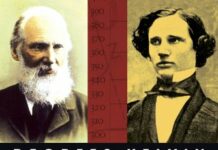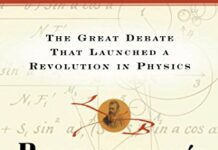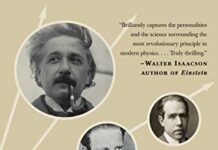
Ebook Info
- Published: 2020
- Number of pages: 240 pages
- Format: PDF
- File Size: 4.95 MB
- Authors: David Lindley
Description
A vivid and captivating narrative about how modern science broke free of ancient philosophy, and how theoretical physics is returning to its unscientific rootsIn the early seventeenth century Galileo broke free from the hold of ancient Platonic and Aristotelian philosophy. He drastically changed the framework through which we view the natural world when he asserted that we should base our theory of reality on what we can observe rather than pure thought. In the process, he invented what we would come to call science. This set the stage for all the breakthroughs that followed–from Kepler to Newton to Einstein. But in the early twentieth century when quantum physics, with its deeply complex mathematics, entered into the picture, something began to change. Many physicists began looking to the equations first and physical reality second. As we investigate realms further and further from what we can see and what we can test, we must look to elegant, aesthetically pleasing equations to develop our conception of what reality is. As a result, much of theoretical physics today is something more akin to the philosophy of Plato than the science to which the physicists are heirs. In The Dream Universe, Lindley asks what is science when it becomes completely untethered from measurable phenomena?
User’s Reviews
Editorial Reviews: Review “A striking examination of an important scientific question: ‘What, exactly, are scholars of fundamental physics today trying to achieve?’ . . . A delightful addition to a widespread, ongoing scientific debate.” —Kirkus (starred review)“[An] eye-opening treatise . . . Lindley’s probing work raises important questions about what science should be, and how it should be approached.” —Publishers Weekly“A thoughtful, captivating analysis of the history of physics. Lindley makes the fascinating point that present-day fundamental physics has become more akin to Platonic philosophy than to Galileo’s, Newton’s, and Faraday’s notion of laws deduced from experiments and observations. A wonderful read.” —Mario Livio, New York Times best-selling author of Brilliant Blunders and the forthcoming Galileo and the Science Deniers “David Lindley’s The Dream Universe is a wonderfully clear story of the science of physics and the way it explains the world around us, from the everyday to the far-flung grandeur of the cosmos. But it is also a deeply thoughtful exploration of the very human processes that can limit such understanding. The result is provocative, compelling—and timely.” —Deborah Blum, author of The Poison Squad: One Chemist’s Single-Minded Crusade for Food Safety at the Turn of the Twentieth Century “The Dream Universe explains clearly the current predicament of fundamental physics, putting it into long-term historical context. Its call for practitioners to come to grips with the question of how to advance the subject in a changed environment is an important one that deserves close attention.” —Peter Woit, Senior Lecturer of Mathematics Columbia University and author of Not Even Wrong: The Failure of String Theory and the Search for Unity in Physical Law “David Lindley’s The Dream Universe is one of those Big Idea books that achieve the kind of irresistible, tightrope balance between pithy and profound, between considerable charm and disarming simplicity, that can arise only from a mastery of a subject—in this case nothing less than the history of how we think about the cosmos, from Babylonian astrology to the quantum revolution and, now, back again: a fight, Lindley argues, for the soul of science.” —Richard Panek, author of The Trouble with Gravity: Solving the Mystery Beneath Our Feet About the Author DAVID LINDLEY holds a Ph.D. in astrophysics from Sussex University and has been an editor at Nature, Science, and Science News. Now a full-time writer, he is the author of Uncertainty, The End of Physics, Where Does the Weirdness Go?, The Science of Jurassic Park, Boltzmann’s Atom, and Degrees Kelvin. He was also the recipient of the Phi Beta Kappa science writing prize. He lives in Alexandria, Virginia.
Reviews from Amazon users which were colected at the time this book was published on the website:
⭐In March, this book was reviewed in the New York Times by physics professor Jim Al-Khalili, member of the Royal Society. The review was pleasant but skeptical (as I read it in hindsight) but what really attracted my attention was the fascinating and deep discussion going on in the reader comments. I thought, with this much interest and thoughtfulness expressed in the book review, probably I should get a hold of this book.I’ve held a lifelong interest in questions such as: What is mathematics? and Why is the physical world so well-described by mathematics? (Looking at that question, I can’t help but retort, Why not? Would one prefer a world where physical actions can’t be logically described, or are governed by the whim of outside agents?)Anyhow, although due to space limitations these days I prefer to preview books from a library prior to purchase, with all the libraries closed in the current crisis, I went ahead and ordered the book. I’ve taken a couple weeks to read through it.I’ll credit the author, who has a long and illustrious publishing history, with a sincere attempt to get across his main thesis that modern theoretical physics has devolved into a school of philosophy. However, as I followed along all the discussion starting with Galileo, proceeding through Dirac and quantum mechanics, and ending more-or-less at Tegmark’s multiverse vision (as described in “Our Mathematical Universe”, which I had already read), I just wasn’t convinced at the depth intended by the author.At a certain level I could actually agree with the author’s premise, given a broad definition of “philosophy” harking back to the origin of modern science as a field known as “natural philosophy”. But more specifically, the author’s argument is based on common-language aka “popular” explanations of the physics-mathematics. The mathematics itself may simply be too abstract or removed from daily experience. As a result, a small branch of publishing has arisen of “popular” accounts of leading-edge physics specifically in astrophysics-cosmology, standard model particle physics, etc. which has provided handy descriptions of the more speculative interpretations of the mathematics, mostly deriving from quantum physics conundrums that were first noticed in the 1930’s. Over the years, these have evolved from Schrodinger’s Cat to the multiverse, it would seem.In the end, the author based too much of his argument on contemporary popular accounts of the science, which to meet publishing requirements contained a lot of speculative material. Indeed, a lot of this material could helpfully be classified as philosophical speculations or “philosophy”. Focus instead on the experimental or observational side of physics-astrophysics and you get a more solid, encouraging picture of scientific progress. The theorists should also get credit for staying with a program that has given us a detailed Big Bang cosmology, the Standard Model of Particle Physics, and General Relativity. With all this under their belts, one could readily anticipate the next theoretical breakthroughs to be much tougher.(Updated 11-May-2020) Somehow “Dream Universe” led me to another book, Jim Baggott’s 2013 “Farewell to Reality”. (Just right now I can’t locate the actual reference to it within “Dream Universe”) I was already a fan of Baggott’s quantum physics books, but I had until now overlooked this one. Like “Dream Universe”, “Farewell to Reality” also makes the case that modern theoretical physics has strayed far afield of any connection to reality. I appreciated Baggott’s swing at this more since he starts with 20th century physics and delves a layer or so deeper into the technicalities (while still eschewing equations).
⭐The author has a decided point of view, which makes his story of the development of modern science more exciting and pointed for the reader than it would be if he had no view of his own. He’s a talented teller of the main peaks and valleys in the unfolding of physics since the 17th century. His complaint is that it’s gone from the stage of forming hypotheses that have empirical confirmation to a super-speculative level of research whose real-world implications are beyond picturing. So, we live in a world we can no longer picture. That’s a serious & valid complaint, in my own view, but I don’t see that there’s anything we can do about it except pursue our researches into the mathematical implications until, eventually, the real world so indicated can become visible to us again. Meanwhile, this author has done a first rate job of bringing us as close to the cutting edge as we nonphysicists can get.
⭐When I picked up this book, I expected something along the lines of other critics of the current path of theoretical physics like Lee Smolin (who Lindley name-checks here). Unfortunately, I found Dr. Lindley’s book to much less interesting than anything by Smolin. Though I think there’s something to Lindley’s premise, that theoretical physics has become something more like philosophy and less like science, I found it difficult to get there.In all honesty, the biggest problem I had with this book is that it is difficult to read: not in the sense that it’s challenging, but that it’s soft. By that, I mean that his prose is too casual for his subject. His “jokes” and “slang” fall flat repeatedly. Its brevity doesn’t help in argument development. In addition, the reader gets the sense that he or she is being talked down to.Perhaps Dr. Lindley is correct, and physics has become too abstract with its dependence on mathematics to attempt progress. I certainly support the idea that physics is not science when it cannot come up with testable predictions (multiverse, etc.). And yet, I don’t think this is the book that’s going to create many converts.
⭐Two books this year covered somewhat similar material. Sabine Hossenfelder is very smart and absolutely right, but someone told her to pad her book with tedious anecdotes about how she went to see various famous scientists. This book is much more interesting and well-written; it deals with the subject, not the author.Of course the first half or more deals with the beginnings of modern science, and many of us already know that (I got it in high school from reading Koestler’s The Sleepwalkers). But in fact that history leads nicely into the subsequent discussion of the successes of physics and its current failures. Generations of teachers have failed to teach their physics students that “theorists propose, experimentalists dispose”.The discussion of how the Dirac equation was made to look beautiful is nicely done…I never thought of it that way.
⭐This is more-or-less a history of fundamental physics which attempts to chart the changing attitudes towards what “fundamental physics” was thought to be. Ultimately, I found it to be somewhat of a lightweight. He spends far too much time on Galileo — uncritically accepting all the myths around him — and too little time on Newton and the French school that expanded on his work. In more modern times I think he does not cover the late 19th and early 20th century flowering of fundamental physics sufficiently. But the big shortcoming is that while he does do a good job of showing how fundamental physics has lost its way by enumerating some of the ideas which are being taken seriously, he does an inadequate job of critically evaluating some of the more nonsensical bits.I would have like to have seen a lot less Gallilean mythology and more on our current physical mythologies!
Keywords
Free Download The Dream Universe: How Fundamental Physics Lost Its Way in PDF format
The Dream Universe: How Fundamental Physics Lost Its Way PDF Free Download
Download The Dream Universe: How Fundamental Physics Lost Its Way 2020 PDF Free
The Dream Universe: How Fundamental Physics Lost Its Way 2020 PDF Free Download
Download The Dream Universe: How Fundamental Physics Lost Its Way PDF
Free Download Ebook The Dream Universe: How Fundamental Physics Lost Its Way



